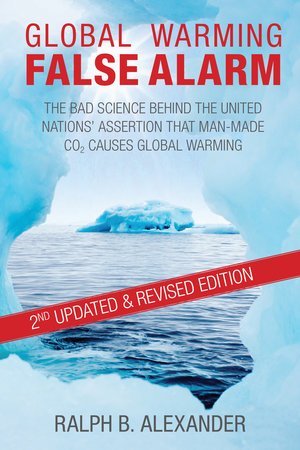Consensus in Science: Is It Necessary?
/An important but often misunderstood concept in science is the role of consensus. Some scientists argue that consensus has no place at all in science, that the scientific method alone with its emphasis on evidence and logic dictates whether a particular hypothesis stands or falls. But the eventual elevation of a hypothesis to a widely accepted theory, such as the theory of evolution or the theory of plate tectonics, does depend on a consensus being reached among the scientific community.
In politics, consensus democracy refers to a consensual decision-making process by the members of a legislature – in contrast to traditional majority rule, in which minority opinions can be ignored by the majority. In science, consensus has long been more like majority rule, but based on facts or empirical evidence rather than personal convictions. Although observational evidence is sometimes open to interpretation, it was the attempt to redefine scientific consensus in the mold of consensus democracy that triggered a reaction to using the term in science.
This reaction was eloquently summarized by medical doctor and Jurassic Park author Michael Crichton, in a 2003 Caltech lecture titled “Aliens Cause GlobaL Warming”:
“I want to pause here and talk about this notion of consensus, and the rise of what has been called consensus science. I regard consensus science as an extremely pernicious development that ought to be stopped cold in its tracks. Historically, the claim of consensus has been the first refuge of scoundrels; it is a way to avoid debate by claiming that the matter is already settled. …
Let’s be clear: the work of science has nothing whatever to do with consensus. Consensus is the business of politics. Science, on the contrary, requires only one investigator who happens to be right, which means that he or she has results that are verifiable by reference to the real world.
In science consensus is irrelevant. What is relevant is reproducible results. … There is no such thing as consensus science. If it’s consensus, it isn’t science. If it’s science, it isn’t consensus.”
What Crichton was talking about, I think, was the consensus democracy sense of the word – consensus forming the basis for legislation, for political action. But that’s not the same as scientific consensus, which can never be reached by taking a poll of scientists. Rather, a scientific consensus is built by the slow accumulation of unambiguous pieces of empirical evidence, until the collective evidence is strong enough to become a theory.
Indeed, the U.S. AAAS (American Association for the Advancement of Science) and NAS (National Academy of Sciences, Engineering and Medicine) both define a scientific theory in such terms. According to the NAS, for example,
“The formal scientific definition of theory … refers to a comprehensive explanation of some aspect of nature that is supported by a vast body of evidence.”
Contrary to popular opinion, theories rank highest in the scientific hierarchy – above laws, hypotheses and facts or observations.
Crichton’s reactionary view of consensus as out of place in the scientific world has been voiced in the political sphere as well. Twentieth-century UK prime minister Margaret Thatcher once made the comment, echoing Crichton’s words, that political consensus was “the process of abandoning all beliefs, principles, values and policies in search of something in which no one believes, but to which no one objects; the process of avoiding the very issues that have to be solved, merely because you cannot get agreement on the way ahead.” Thatcher was a firm believer in majority rule.
A well-known scientist who shares Crichton’s opinion of scientific consensus is James Lovelock, ecologist and propounder of the Gaia hypothesis that the earth and its biosphere are a living organism. Lovelock has said of consensus:
“I know that such a word has no place in the lexicon of science; it is a good and useful word, but it belongs to the world of politics and the courtroom, where reaching a consensus is a way of solving human differences.”
But as discussed above, there is a role for consensus in science. The notion articulated by Crichton and Lovelock that consensus is irrelevant has arisen in response to the modern-day politicization of science. One element of their proclamations does apply, however. As pointed out by astrophysicist and author Ethan Siegel, the existence of a scientific consensus doesn’t mean that the “science is settled.” Consensus is merely the starting point on the way to a full-fledged theory.
Next week: How Elizabeth Holmes Abused Science to Deceive Investors





